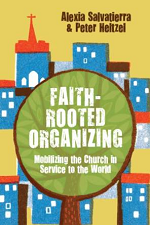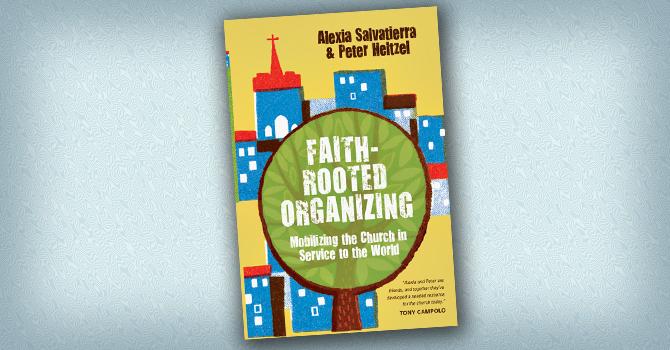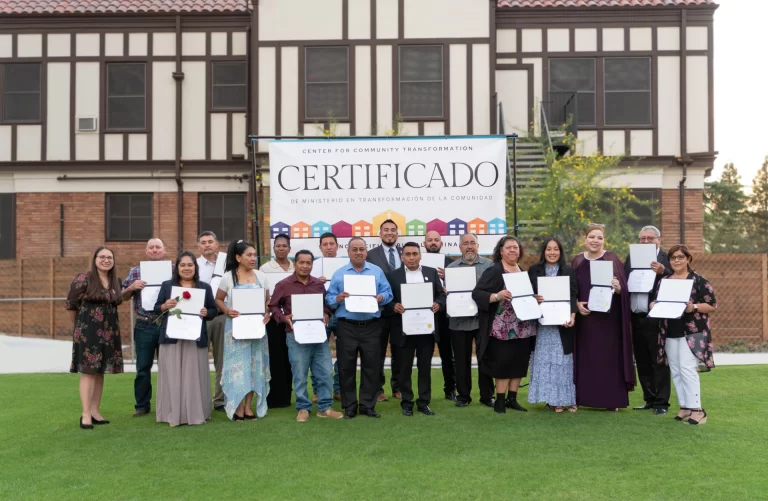 The authors of Faith-Rooted Organizing present not so much a model to follow but rather a way of life on the road to a more just society. Organizing communities in a manner shaped and guided in every way by faith principles and practices contrasts dramatically from more secular models. Through a wealth of personal experiences and stories from a range of faith traditions, they demonstrate that transforming a community demands more than development; it requires courageous organizing and persistent strategic advocacy. To create sustainable change, the root causes of a community’s problems must be addressed in and by the people who live there. Organizing and advocacy together catalyze democracy, the participation of a people in the pursuit of the common good. After all, reformation and even revolution are ongoing processes, not events, and require the empowerment of a people.
The authors of Faith-Rooted Organizing present not so much a model to follow but rather a way of life on the road to a more just society. Organizing communities in a manner shaped and guided in every way by faith principles and practices contrasts dramatically from more secular models. Through a wealth of personal experiences and stories from a range of faith traditions, they demonstrate that transforming a community demands more than development; it requires courageous organizing and persistent strategic advocacy. To create sustainable change, the root causes of a community’s problems must be addressed in and by the people who live there. Organizing and advocacy together catalyze democracy, the participation of a people in the pursuit of the common good. After all, reformation and even revolution are ongoing processes, not events, and require the empowerment of a people.
One example that was striking to me, and well-known to our valley context, was the way Cesar Chavez transformed more traditional coalition-building/power approaches to organizing through a deep theological and moral understanding of labor from his faith heritage, rooting it in the dignity of mankind, and giving it new moral authority. Faith-rooted organizing seeks not only to build leaders but to sustain leaders for generations, and a solid moral footing is essential. As Chavez advocated, the struggle for justice is driven by patience and progress. The only time you lose is when you quit.
Justice has so much to do with power, the capacity to act and influence others to act. And there is no organizing that does not face the issue of power. Organizing is about bringing people together to create systemic community change. A power imbalance leads inexorably to injustice. When organizing seeks lasting change, there is a focus on redistributing power. I was moved by the multiple stories in the book about how this happens.
Many seemed to encompass so much more advocacy than what I might previously have been able to picture leading in my community. Our outreach group has been trying to move beyond charity to community development. But when the authors addressed the healing needed from the results of privilege, how privilege strengthens the spiritual sickness of our society, I could start imagining taking our group through some of the exercises they shared, such as pairing homeless “chaplains” with non-homeless volunteers. It was enlightening to realize how privilege creates spiritual and psychological damage that must be healed in order for people to bring their full contribution to God’s work for justice. This is not just advocating for the poor, but for those in need of restoration.
In a Valley context whose history has been so often tainted by the misuse of power, it was compelling to consider that we serve “a God who is about empathy not empire, mercy not mastery, vulnerability not violence, incarnate in a poor baby not in an earthly King. The Bible is full of the promise of power to those with little hope of attaining any standard definition of power” (p. 77). This gives guidance to people of faith who would use power in a way that honors that God.
Every sector of a city has gifts to offer, and those can best be utilized when they are organized in a way that is designed to their context; for the common good. Faith-rooted organizing examines all that faith and the faith community brings to the table of change – rituals, symbols, dreams, values, Scripture and more. We organize communities in faith and with faith. As Salvatierra asserts, “One of the beautiful paradoxes of our faith is that acceptance of what is does not erase hope for what can be.”





